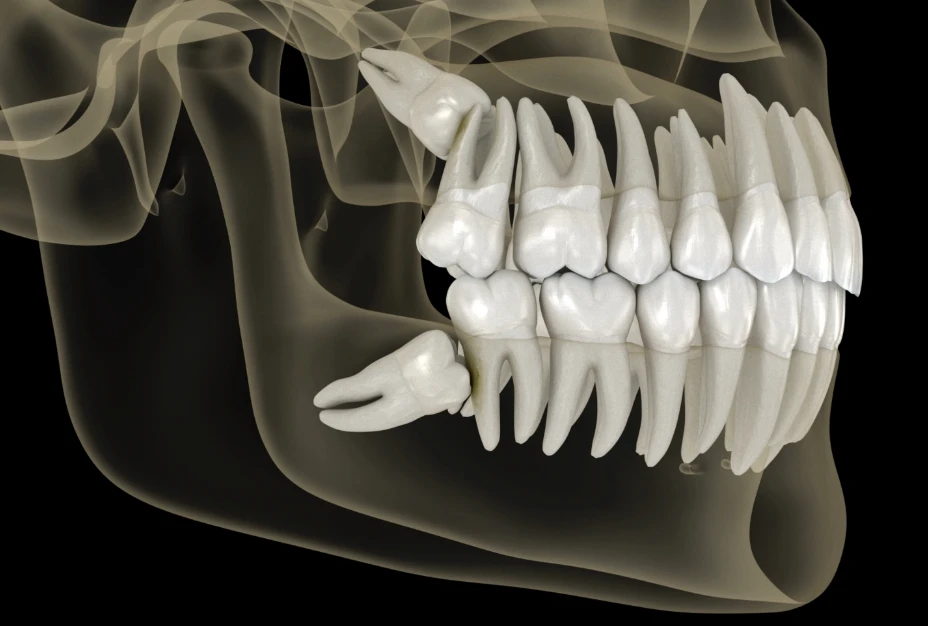https://www.hollywoodperfectsmile.net/wisdom
Oral health is an essential part of overall well-being, and understanding the development of teeth throughout a lifetime can help in maintaining a healthy smile. From the emergence of baby teeth to the potential issues surrounding wisdom teeth, each stage of dental development plays a crucial role in oral health. Let's explore the journey of teeth from infancy to adulthood.
The Stages of Dental Development
Baby Teeth (Primary Teeth)
Also known as primary teeth, baby teeth typically begin to emerge between 6 and 12 months of age. By the age of 3, most children have a full set of 20 baby teeth, which eventually fall out to make room for permanent teeth. Baby teeth are essential for proper chewing, speech development, and maintaining space for adult teeth.
- Baby teeth are crucial for proper nutrition and aiding in speech development.
- Parents should start cleaning their child's teeth as soon as they emerge to prevent decay.
- Regular dental check-ups are important to monitor the health and development of baby teeth.
Permanent Teeth
Between the ages of 6 and 12, children begin to lose their baby teeth as permanent teeth start to come in. The process of losing baby teeth and getting permanent teeth is known as the mixed dentition phase. By the age of 21, most adults have a full set of 32 permanent teeth, including wisdom teeth.
- Permanent teeth are meant to last a lifetime, so proper oral hygiene is crucial.
- Brushing, flossing, and regular dental visits are essential for maintaining the health of permanent teeth.
- Orthodontic treatment may be necessary to correct misaligned permanent teeth.
Potential Dental Issues
Bruxism (Teeth Grinding)
Bruxism is a common condition that involves grinding or clenching the teeth, often during sleep. This can lead to worn-down teeth, jaw pain, headaches, and other oral health issues. Bruxism can be caused by stress, anxiety, or misaligned teeth.
- Wearing a mouthguard at night can help protect teeth from the effects of bruxism.
- Stress-reducing activities and relaxation techniques may help alleviate bruxism.
- Consult a dentist if you suspect that you are grinding your teeth.
Impacted Wisdom Teeth
Wisdom teeth, also known as third molars, typically emerge between the ages of 17 and 25. However, many people experience issues with impacted wisdom teeth, which are unable to fully emerge due to lack of space in the mouth. Impacted wisdom teeth can cause pain, swelling, infection, and misalignment of other teeth.
- Regular dental x-rays can help monitor the development of wisdom teeth.
- Extraction of impacted wisdom teeth may be necessary to prevent complications.
- Consult with an oral surgeon if you are experiencing pain or discomfort due to impacted wisdom teeth.
Maintaining Dental Health
Proper Oral Hygiene
Maintaining proper oral hygiene is essential for preventing tooth decay, gum disease, and other oral health issues. Brushing at least twice a day, flossing daily, and using mouthwash can help keep teeth and gums healthy.
- Use fluoride toothpaste to strengthen tooth enamel and prevent cavities.
- Eat a balanced diet rich in fruits, vegetables, and calcium for healthy teeth and gums.
- Avoid sugary foods and drinks that can contribute to tooth decay.
Regular Dental Check-ups
Regular dental check-ups are essential for detecting and treating oral health issues early. Dentists can perform cleanings, exams, and x-rays to ensure the health of teeth and gums.
- Visit the dentist at least twice a year for routine check-ups and cleanings.
- Early detection of dental problems can prevent more serious issues down the road.
- Dental check-ups are an opportunity to discuss any concerns or issues with your dentist.
Conclusion
From the emergence of baby teeth to the potential issues surrounding wisdom teeth, dental development is a lifelong process that requires attention and care. By understanding the stages of dental development and practicing good oral hygiene habits, individuals can maintain a healthy smile throughout their lives.
